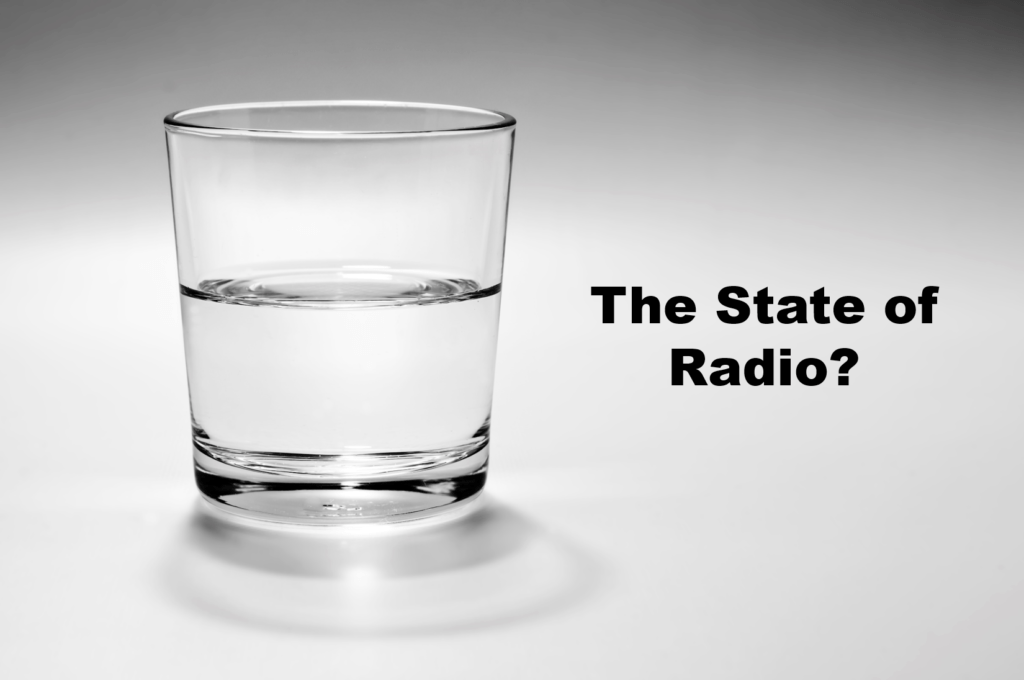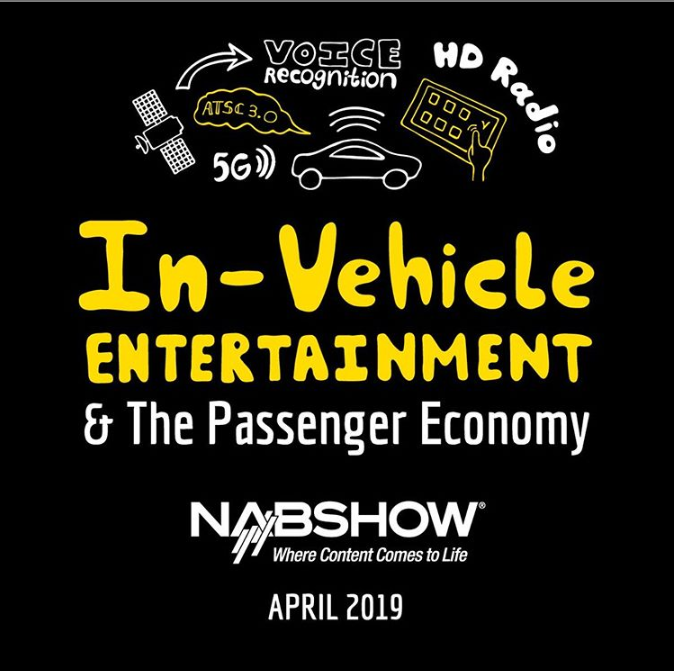Is radio approaching its end times, and what does that mean for music? [Fred Jacobs]
Broadcast radio and media expert, Fred Jacobs, discusses the future of radio and how it will affect the music industry as a whole.
by Fred Jacobs of Jacobs Media
The other day, I wrote a post about baseball’s new rules. While there’s been some attention paid to the addition of larger bases to encourage more running and stealing, as well as new restrictions on defensive alignments, the big change is a pitch clock, designed to make the game go faster.
Most of us don’t relish a lack of progress. We’re looking for movement, pace, rhythm. And we bore easily. When things unnecessarily drag, we crave momentum and speed. As we’ve learned in recent years, the clock is ticking….on our lives, on our careers.
Interestingly, the post dovetails into conversation about the upcoming NAB Convention in Vegas. And the focus back in 2019 was (….wait for it…) radio and the connected car. Here we are, four years later, and the NAB is just around the corner. And it’s like we’ve been driving around in circles for the past four years.
But the auto industry has been on the move, despite the COVID pandemic. Electric vehicles are becoming more commonplace, while the dashboard – and what’s in it – is changing. Our post earlier this week – “What Are Automakers Thinking About AM/FM Radio?” – is still racking up page views and lots of comments. Radio and cars are like peanut butter and jelly – it’s hard to picture one without the other.
But that appears to be a path broadcasters may be headed down, like it or not. And wouldn’t be nice to have great data that tells radio’s compelling story in the car? Well, in the nick of time, I’ll be moderating an NAB panel in just 10 days aptly named “Driving Revenue and Insights with Connected Car Listening Data.” It’s set for Sunday morning, April 16th at 10am in the West Hall of the LVCC.
I’ll be joined by Xperi’s Joe D’Angelo, Westwood’s Pierre Bourvard, and other auto experts. Hubbard’s Ginny Morris will host this session. It’s one I sincerely hope will get things moving again for radio in cars. After all, time IS flying.
Tempus fugit! Chop chop! Tick tock! – FJ
April 2019
When Paul and I are visiting the same clients, we are often asked about what we both do in the company. Even though our functions have merged in recent years, the simple distinction is that he’s sales, I’m programming.
But that only speaks to what we do, not how we do it. Paul has always been the glass half full guy. Me? I tend to be more cynical and jaded about many of the things I’ve witnessed and experienced over the past several decades. Don’t get me wrong – I’m an unabashed radio supporter, but also wish that as an industry, we would do better. In fact, we have to – the competition for people’s attention has only gotten fiercer.
Today’s post is dedicated to the other side of the equation – the growing list of people who are sadly running out the clock on their careers – on radio. You know from watching basketball games this strategy can be effective, but leads to a boring, low-scoring game where nothing really happens. That’s why the NBA and NCAA instituted shot clock rules – it forces the team with the ball to do something.
In life and in radio, there is no shot clock. If you can get away with it, it’s possible to run out the radio clock…for years. And sadly, too many people are doing just that. They’ve quietly set their own time limit – getting their kids through high school or college, salting away enough money to buy that country hideaway, or any number of personal reasons why they’re counting down the months or years until they can call it a day.
I have had many confide to me how they dislike the direction the radio industry has taken in recent years. And how a business that was once fun and enjoyable has become much more challenging and even frustrating endeavor. These are voices from every walk of radio life – managers, personalities, and salespeople in both commercial and public radio.
On the one hand, I have empathy for the many people whose careers haven’t gone as planned or have gone south in recent years. Or the once young swashbucklers who got into the radio business for one reason, but ended up doing something entirely different, and perhaps not as fulfilling. Or those whose dreams have been dashed by the changing business or regulatory climate.
But on the other hand, those who feel the future of radio is someone else’s problem perhaps ought to rethink that shaky logic. Sticking today’s radio Millennials and Gen Zs with unsolvable dilemmas about the industry’s ultimate welfare is irresponsible. And it fails to follow through on the notion of leaving the radio in a better place than how you first found it when you entered the business.
Careers aside, there’s no question success in the radio business is more fleeting that ever before. Economic market conditions have been challenging since the Great Recession. Broadcast radio is now under intense pressure from digital media competitors, both among audience and advertisers. And the “glow” that used to come from working in the radio business has dimmed somewhat.
I remember the days when you told someone you worked in radio, and the typical response was something like this:
“Wow – that must be fun.”
“They pay you to play your favorite music?”
“I’ll bet you get to go to all your favorite concerts.”
Today, the comebacks are more apt to sound like this:
“Does anyone listen to the radio anymore?”
“You mean SiriusXM?”
“I just hate all the commercials you guys play, always at the same time.”
Now in fairness, there are many average citizens who very much believe that being in radio still has a certain romance and charm – especially compared to the careers that many of them pursued or ended up in. They still listen every day, and while they may have discovered other entertainment and information options, they’re still very much consuming AM/FM radio.

I have less of a problem when I hear how consumers are exploring other media choices then when I encounter radio careerists who have all but given up. Or they’re simply running out the clock. That I find both disheartening and discouraging.
There’s never been a time when broadcast radio needs all of us to bring our A Games. As every CEO in the business will tell you, great ideas and innovations are at a premium. And unlike the “good old days” when not a whole lot new or different happened, today’s radio environment is fluid and very much up for grabs. Now more than ever, we need to be both resilient and innovative.
Once conservative broadcast radio companies are exploring unique partnerships and exciting acquisitions. They’re looking for ways to marshal their assets to create more content, revenue, or both. They need an injection of “new and different,” and they know it. You may not agree with the decisions you see being made by executives under more pressure than they’re ever been in their corporate lives. But you should know they’re all working overtime to figure this thing out.
And that’s where you come in. If you’re still motivated and excited to come to work every morning (or evening), you’re ahead of the curve. I’m not going to tell you that every one of your concepts, ideas, or experiments will be taken seriously by your current employer. You might have to walk out the studio door, and go across the street – or across the country. But, there’s never been a time since perhaps the 1950’s and the invasion of television where new startups and new business opportunities have a fighting chance to become realities in the broadcast radio business.

I know I’m about to experience the “state of radio” at the NAB this week in Las Vegas. I’m headed there now, always interested to take in the mood, the vibe, and the temperature of the broadcast radio industry. I’ll be hanging at the Wynn/Encore where the CEOs hold court, attending and participating in sessions and panels, and interfacing with many clients, friends, and both.
The past few years, this mega-gathering in Sin City has taken on a decidedly upbeat tone, as more broadcast leadership has come to accept the realities of digital, and dedicated themselves and their companies to addressing the challenges – and the opportunities.
But if you’re truly at that point where you’re burned out, bummed out, or otherwise out of gas with your radio career, do me a favor. Spare me the details. Don’t even tell me about it.
That’s because I’m one of the many radio veterans trying to make it better, encouraging all of us to bring our best effort to what has become a true test of how good we really are.
And because I’m liable to suggest that if you feel this way, you consider an early exit, and make room for someone else with the youth, energy, and enthusiasm you once brought to the game.
The fact is if you’ve been a foot solider or even a commander in the “Radio Wars,’ we need your ideas and your energy now more than ever. We need your enthusiasm and support, inside the station and out in public.
And if you can’t bring it, maybe it’s time to get out of the way and let someone younger, hungrier, and more innovative take a crack at it.
The clock is ticking – not just on our careers but on the business we love.
For more information on the NAB Show, celebrating its 100 years of service to the industry, go here.
Fred Jacobs founded Jacobs Media in 1983, and quickly became known for the creation of the Classic Rock radio format.
Jacobs Media has consistently walked the walk in the digital space, providing insights and guidance through its well-read national Techsurveys. In 2008, jacapps was launched – a mobile apps company that has designed and built more than 1,300 apps for both the Apple and Android platforms. In 2013, the DASH Conference was created – a mashup of radio and automotive, designed to foster better understanding of the “connected car” and its impact. Along with providing the creative and intellectual direction for the company, Fred consults many of Jacobs Media’s commercial and public radio clients, in addition to media brands looking to thrive in the rapidly changing tech environment. Fred was inducted into the Radio Hall of Fame in 2018.